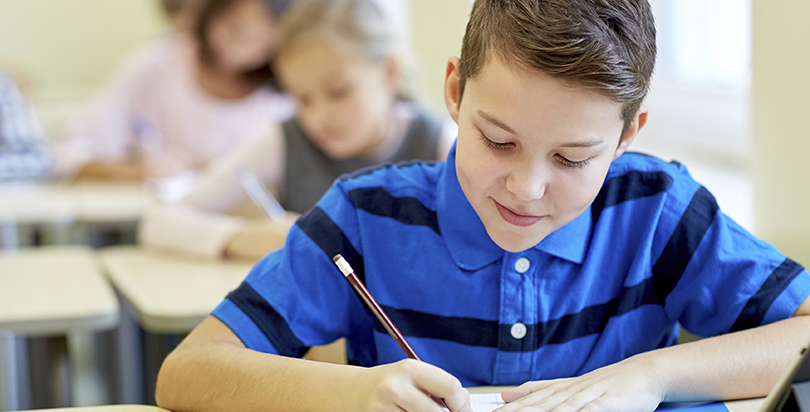Catholic schools have long been unapologetic supporters of high standards for all children, and we at the Partnership use results from the New York tests to benchmark our progress and our students’ academic growth, and to ensure we are keeping expectations high for our students.
In an age when some people are opting out, we are opting in.
Of course, we’re aware of the pushback against standards and tests, particularly in our home state of New York. But we believe that pushback is misguided and that the opt out movement is misleading parents. In particular, it is using tests as a scapegoat for implementation decisions that are mostly within the power of educators and education leaders to change.
As choice schools, we’re fortunate. Our parents — many of whom come from the nation’s poorest congressional district in the South Bronx — opt in to our schools. And they make sacrifices to do so, paying on average about $250 a month in tuition. Our school leaders and teachers — who are pillars of their communities and who are deeply committed to the mission of Catholic education — have deep respect for the families and communities we serve, and they have built tremendous trust with parents and students.
That’s why we take seriously any parent’s decision to opt out. As Catholic educators we understand that parents are a child’s first teachers. We are partners with parents in their children’s education, and we take that partnership very seriously. We also understand that when a parent comes to us asking to opt out of a test, it’s because they’ve been led to believe that decision serves their son or daughter’s best interests.
(More on Partnership Schools: A Catholic school comeback in New York City)
Unfortunately, in an environment in which New York State’s public school teachers unions have over the past two years actively supported a misinformation campaign about testing, even Catholic school parents are at risk of being misled. (And the irony is not lost on those of us who work in Catholic schools that those special interests who work to fight any effort to expand school choice in the Empire State are only comfortable with “parent choice” if those choices serve their interests.)
While very few of our parents opted out of the test last week, we did receive at least one form letter similar to those that have been crafted and distributed by union-backed organizations that are hostile to standardized testing. The letter included the kind of heated and hyperbolic rhetoric that is now common in education debates. It explained: “excessive standardized testing is consuming a child’s academic year” and that it “forces [teachers] to ‘teach to test’ and takes the joy out of learning” (emphasis added).
From our perspective, even one student opting out is too many. So it’s important to set the record straight: In New York State, the English and math tests take up less than one percent of the total time a student is in school. That’s hardly excessive.
And let’s be clear, tests don’t “force” anything. They measure. Decisions to scrap core content instruction in favor of test prep are leadership decisions, not policy decisions. Worse still, scrapping core content instruction in favor of test prep isn’t altogether very effective. In English in particular, while test prep may give a modest short-term score boost, it does very little to improve student reading comprehension over the long term.
That’s why in our schools, we say — and believe — that the best “test prep” we can offer our students is knowledge rich instruction in the core content areas. And that’s why choosing the right curriculum, ensuring that our teachers have the resources and support they need — and giving them the flexibility to innovate when they need to meet their students’ needs — is the foundation of our school model.
But most important, independently developed standardized tests are essential to the broader education system, not just to our six schools. Recently, a Johns Hopkins University study found that “when evaluating a black student, white teachers expect significantly less academic success than black teachers,” and that “this is especially true for black boys.”
Moreover, “for black students, particularly black boys, having a non-black teacher in a 10th grade subject made them much less likely to pursue that subject by enrolling in similar classes. This suggests biased expectations by teachers have long-term effects on student outcomes.”
This isn’t the first study to demonstrate that teachers often have different expectations for students of color (see here for another), and together, these studies suggest the very real need for independent measures to ensure all students are being held to the same bar regardless of race or socioeconomic status.
Of course, the biases revealed by these studies are often unconscious and undoubtedly unintentional, but that doesn’t make them any less real. And if we ignore them and eliminate standardized benchmarks of student learning, or if we rely on a system informed only by teacher-created tests and teacher-conferred grades, we could be intentionally systematizing the kind of unconscious bias that holds our most vulnerable children back.
The special interests behind New York’s well-funded opt-out campaign are determined to ignore these inconvenient facts. And in doing so, they help perpetuate an unequal education system and they condemn the best tool we have to expose those inequalities.
It’s time to opt-out of the polarizing and overblown accusations, so we can get back to the work of educating our kids.

Get stories like these delivered straight to your inbox. Sign up for The 74 Newsletter


;)